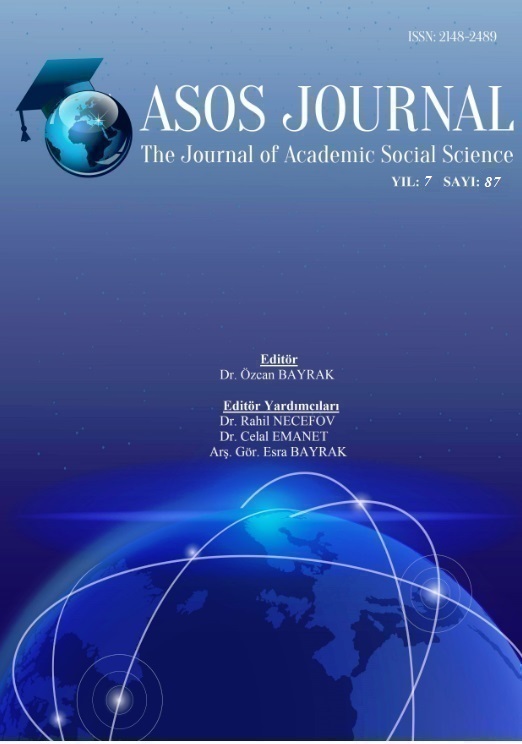Author :
Abstract
Başarının getireceği sonuç ve sorumluluklardan duyulan kaygıdan dolayı kendi potansiyelini sınırlandırma olarak tanımlanan başarı korkusu, bir tür kendini sabotaj biçimidir. Bu durum başarı için gerekli bilgi, beceri ve potansiyelin yokluğu ile ilgili olmayıp, başarı için bireysel ve çevresel koşullar yeterli olduğu halde bireyin başarılı olmayı istememesi durumudur. Bu araştırmanın amacı, başarı korkusunun yaşam doyumunu negatif etkileyeceği, öz yeterliğin ise bu negatif etkiyi ortadan kaldıracak aracı role sahip olacağı hipotezlerini sınamaktır. Araştırmanın örneklemi, yüzde 63.9’u kadın, yüzde 36.1’i erkek, 18-25 yaş arası 602 üniversite öğrencilerinden oluşmaktadır. Araştırmada ilişkisel tarama yöntemi kullanılmıştır. Verilerin toplanmasında, Başarı Korkusu Ölçeği, Genel Öz Yeterlik Ölçeği ve Yaşam Doyumu Ölçeği kullanılmıştır. Verilerin analizinde YEM tekniği uygulanmıştır. Araştırmada, başarı korkusu ile yaşam doyumunu ve öz yeterlik arasında anlamlı negatif ilişkinin olduğu; buna karşılık öz yeterlik ile yaşam doyumunun pozitif anlamlı ilişkiye sahip olduğu saptanmıştır. Başarı korkusu ile yaşam doyumu arasındaki ilişkiye, öz yeterliliğin aracı değişken olarak dahil edilmesiyle, başarı korkusunun yaşam doyumu üzerindeki negatif etkisinin ortadan kalktığı gözlenmiştir. Araştırmanın sonunda, bu bulgulara dayalı olarak öneriler geliştirilmiştir.
Keywords
Abstract
The fear of success, defined as limiting self-potential due to the concern of the results and responsibilities of success, is a form of self-sabotage. This situation is not related to the lack of knowledge, skills and potential for success, but the individual does not want to be successful, although individual and environmental conditions are sufficient for success. The aim of this study is to test hypotheses that fear of success will affect life satisfaction negatively and self-efficacy will have a mediating role to eliminate this negative effect. The sample of the study consisted of 18-25 years old 602 university students, 63.9% of them were women, 36.1% were of them men. Relational screening model was used in the study. In the collection of data, Fear of Success Scale developed by Hyland and Dann (1988) and General Self Efficacy Scale developed by Sherer Vd. (1982) and adopted Turkish by Gözüm and Aksayan (1992) and Satisfaction With Life Scale developed by Denier Vd (1985) and adopted Turkish by Yetim were used. Data were analyzed by using YEM technique. In the study, it was found that there was a significant negative relationship between fear of success and satisfaction with life and self-efficacy and in response to this, self-efficacy and life satisfaction have a positive relationship. With the inclusion of self-efficacy as a mediator variable to the relationship between fear of success and satisfaction with life, the negative effect of fear of success on satisfaction with life was eliminated. At the end of the study, suggestions were developed based on these findings.





